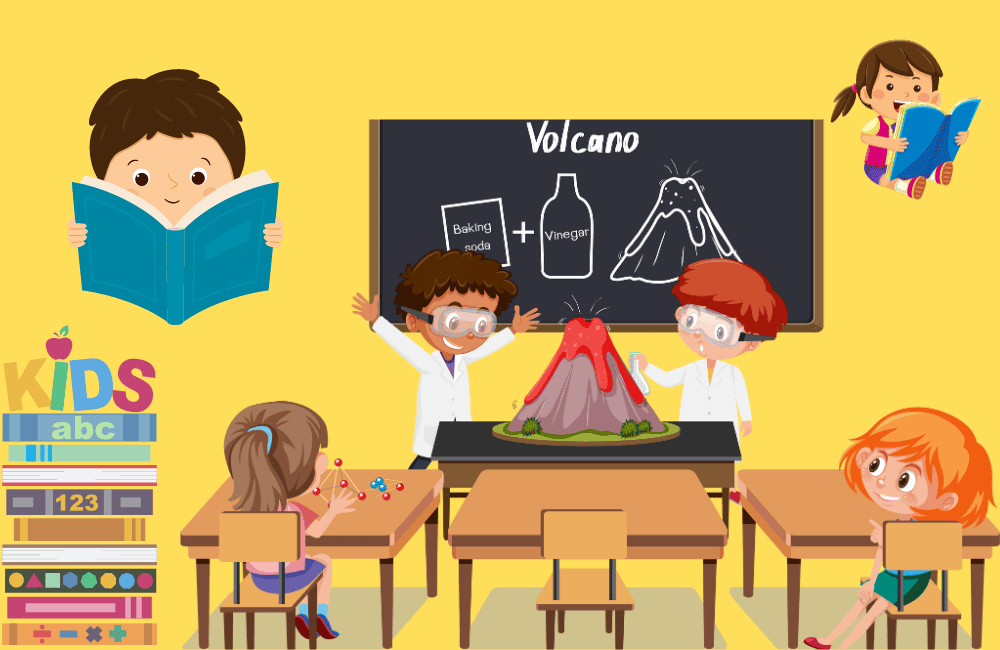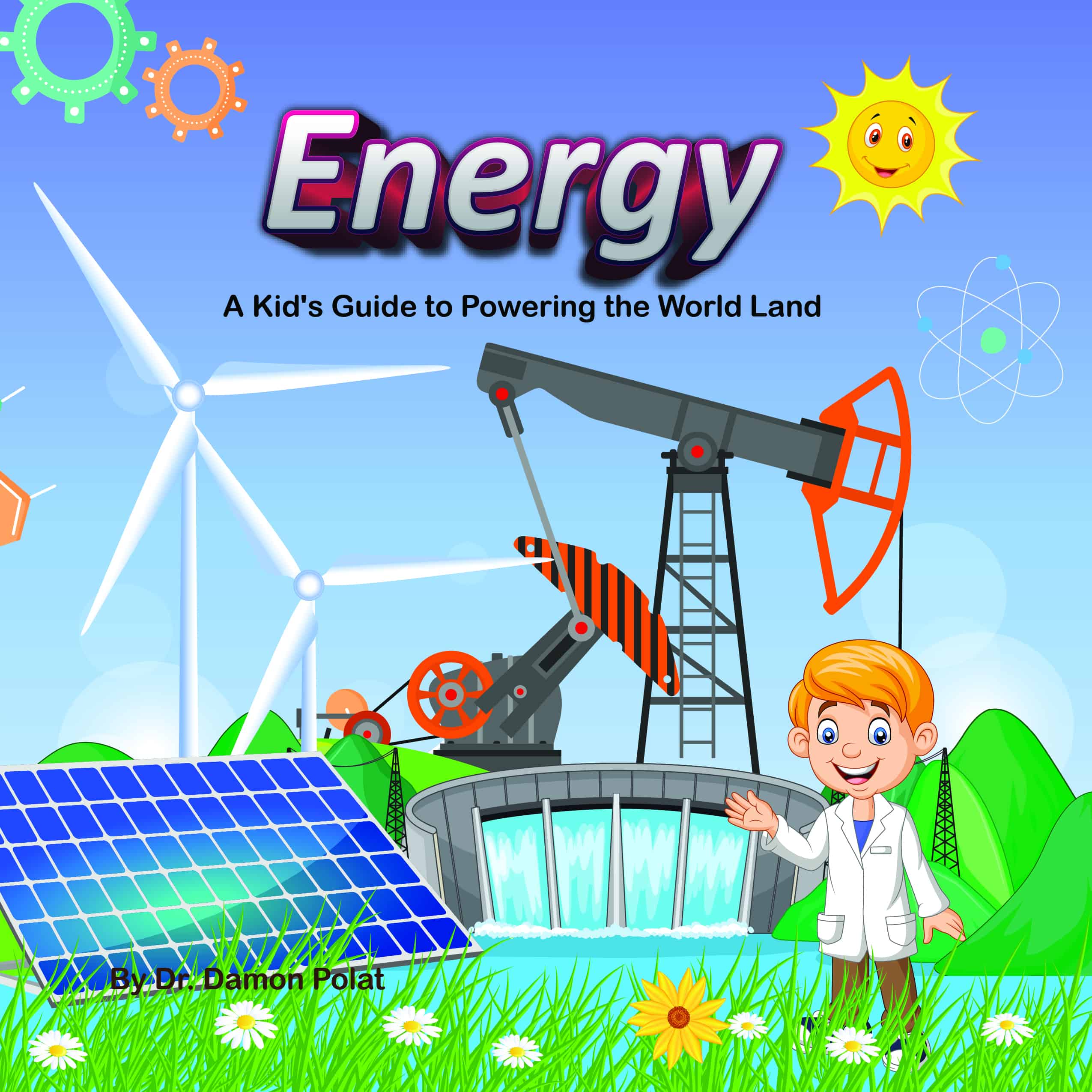Table of Contents
Introduction
In a world awash with information and technological advances, it is more important than ever to lay a foundation of scientific literacy at a young age. Reading has long been a fundamental building block in childhood development, laying the roots for a lifetime of learning and discovery. Children’s science books in particular, however, play a unique and indispensable role in the education of young people. They serve as a catalyst for curiosity, critical thinking, and a deeper understanding of the universe.
Children’s science books open up new dimensions of learning for children, allowing them to explore different scientific fields, from the mysteries of the cosmos to the intricate workings of living organisms. Science books for kids not only provide young people with factual knowledge, but also foster cognitive skills such as analytical thinking, problem solving, and logical reasoning. Exposure to various scientific concepts enables children to form a picture of the world around them, broaden their horizons, and develop a sense of wonder and inquiry.
The purpose of this article is to examine the transformative effect of children’s science books on their minds. This post aims to shed light on how best science books can help improve various cognitive skills and sharpen perception, which ultimately contributes to a child’s intellectual development. By exploring the cognitive and perceptual benefits and discussing practical ways to integrate children’s science books reading into everyday life, we hope to inspire parents, educators, and caregivers to consider science books as valuable companions on a child’s journey of learning and discovery.
Cognitive Benefits of Reading Children’s Science Books
Enhanced Critical Thinking
Children’s science books are designed to encourage critical thinking in children. By presenting scientific facts, theories, and the methods used to obtain those findings, these books encourage young readers to think critically and analytically about the information presented to them. Children learn to weigh evidence, evaluate different perspectives, and draw informed conclusions-skills that are important not only in science but also in everyday decision-making. By introducing the concept of scientific skepticism, young readers learn to question information, look for evidence, and distinguish between credible and unreliable sources, ultimately improving their judgment and decision-making skills.
Problem-Solving Skills
Studying scientific concepts and methods means unraveling the mysteries of the universe, which requires problem-solving skills. Children’s science books often present problems and their solutions in ways that help children understand the logical sequence and methods that lead to a conclusion. This experience helps cultivate a problem-solving mindset that enables children to use scientific methods to overcome challenges, find solutions to problems, and understand the consequences of their actions. When children learn to approach problems systematically and logically, they acquire skills that are applicable in various areas of life, from school to personal development.
Memory and Retention
The cognitive stimulation provided by science books goes a long way toward improving children’s memory and retention of information. The intricate details, vivid images, and complex concepts in children’s science books require a high level of cognitive engagement and stimulate the brain to make new connections and strengthen existing neural pathways. In addition, the diverse topics and multidimensional presentation of information in science books—a combination of text, pictures, and sometimes hands-on experiments—allow for varied learning experiences that appeal to different learning styles and help improve retention of information. Concepts are often repeated and reinforced in these books, which helps children better retain the information, which is critical to building a solid foundation in science.
In summary, the cognitive benefits of reading children’s science books are many. They act as a catalyst for the development of critical thinking and problem-solving skills-skills that transcend academic boundaries and are important life skills. In addition, the rich content and varied representations in children’s science books play a critical role in improving memory and retention, which helps children build a solid knowledge base in science. Including science books in children’s reading repertoire can therefore make an important contribution to their cognitive development and lay the foundation for a lifetime of learning and exploration.
Perceptual Learning and Scientific Concepts
Broadening Perspectives
Science books serve as windows to the limitless universe, offering children diverse and multidimensional perspectives on the world around them. By exploring scientific concepts, theories, and phenomena, children develop the ability to perceive and understand the complexity of the natural and physical world in new and profound ways. These books introduce young minds to different ecosystems, the laws of the universe, the microscopic world that cannot be seen with the naked eye, and the intricate dynamics of the human body, expanding their understanding and awareness. The diverse perspectives children gain from reading children’s science books enrich their intellectual abilities and perceptual skills.
Application of Knowledge
One of the fundamental benefits of reading science books is children’s ability to apply the knowledge they acquire to real-life situations. Understanding scientific principles allows children to relate the concepts they learn to everyday experiences, reinforcing what they have learned and creating a deeper connection to the material. Whether it’s applying the principle of leverage when using a seesaw or understanding the water cycle when it rains, applying scientific knowledge promotes experiential learning. This connection between theoretical knowledge and practical application not only reinforces what is learned, but also encourages children to explore, investigate, and learn from their surroundings, making learning an active and dynamic process.
Diverse Science Genres
The field of science is vast and varied, encompassing different genres, each offering different learning experiences and insights. From biology, which unlocks the mysteries of life and living organisms, to physics, which explores the fundamental laws of the universe, to chemistry, which deals with the composition, properties, and transformation of matter, each genre helps to enhance perception and understanding. Each of these genres offers unique learning opportunities and promotes different aspects of cognitive and perceptual development.
For example, biology can improve children’s observational and analytical skills as they investigate living organisms, physics can improve children’s mathematical and spatial skills as they learn about forces and motion, and chemistry can enhance children’s reasoning and experimental skills as they investigate chemical reactions. Engaging in a variety of science subjects provides a holistic and well-rounded learning experience that fosters diverse skills and broadens intellectual horizons.
Science books play an important role in shaping children’s perceptual learning. They provide a kaleidoscope of perspectives that foster understanding of the diverse world and enable the application of learned concepts to everyday life. The variety of science genres contributes to a multi-faceted learning experience and enriches children’s knowledge base and cognitive skills in multiple dimensions. By fostering a holistic and sophisticated understanding of scientific concepts, children’s science books lay the foundation for a lifelong journey of exploration, discovery, and learning that enables children to explore the world with expanded perceptions and a deeper understanding of the intricacies of the universe.
Incorporating Science Reading into Daily Routines
Creating a Reading Schedule
To encourage reading, it is important that you set up a regular reading schedule. Parents and caregivers can set aside a specific time each day for reading, such as during the child’s bedtime or at a time when the child is most receptive. Consistency is key. Just 15 to 20 minutes of daily reading can make a big difference in fostering a love of science. A structured routine helps develop discipline and make reading a regular part of the day so that engagement with science books is sustained over time.
Choosing the Right Books
Selecting appropriate children’s science books is critical to maintaining a child’s interest and ensuring effective learning. Parents should select books that are age-appropriate, engaging, and informative. Books with vivid illustrations, simple explanations, and interactive elements are especially appealing to younger children. As children grow, more detailed and complex content can be introduced. It is important to consider the child’s interests and curiosity when choosing books. A child who is fascinated by animals may like biology books more, while a child who is interested in the stars may prefer astronomy books. By offering a variety of children’s science books, you can cater to developing interests and provide children with a broad range of scientific knowledge.
Interactive Learning
Supplementing reading children’s science books with interactive learning tools and resources can improve understanding and engagement. There are numerous learning apps, online games, and experiments that bring science concepts to life, provide hands-on experiences, and reinforce information gained through reading. Simple experiments at home that relate to the books they read allow children to experience science in action and develop a deeper connection to the subject matter. Interactive learning fosters an active learning environment where children can explore, experiment, and learn by doing, which is critical to solidifying scientific knowledge and fostering a love of science.
Integrating science reading into daily routines is a multifaceted approach that involves structured scheduling, careful selection of reading materials, and integration of interactive learning experiences. By establishing a dedicated reading time, selecting books that are age-appropriate and match the child’s interests, and supplementing reading with interactive learning, parents and educators can create a supportive and enriching learning environment. This approach not only ensures that the child absorbs scientific knowledge, but also fosters curiosity, engagement, and a deep-rooted love of science, paving the way for continued exploration and learning in the world of science.
Conclusion
Children’s science books play a central role in the education of the young generation, they are a beacon of knowledge and a source of inspiration. They not only convey factual information, but also enrich cognitive skills, broaden perspectives, and arouse curiosity. The mix of vivid narratives, factual details, and interactive learning that science books provide can transform the learning experience and have a profound impact on children’s intellectual development and perceptual abilities.
Final Note
Let us consider children’s science books as indispensable allies in raising informed, curious, and enlightened minds, fostering a lifelong journey of learning and discovery, and enabling our children to understand and marvel at the wonders of the universe. The seeds of knowledge planted in the pages of science books have the potential to cultivate minds that will one day unlock the mysteries of the universe and produce breakthrough innovations that contribute to the advancement of humanity.
Call to Action
Parents, educators, and caregivers are key to unlocking every child’s potential. Integrating science books into children’s daily reading can be the catalyst that sparks curiosity, fosters a desire to explore, and lays the foundation for a lifelong learning journey. In an era where information abounds, it is imperative to expose our children to resources that are not only informative, but also enriching and engaging.
One author worth discovering is Dr. Damon Polat, who has written a series of insightful children’s science books for children that make learning science an enjoyable and rewarding experience. His books are packed with engaging content, vivid illustrations, and interactive elements that stimulate young minds and make learning fun. Dr. Polat’s science books are available on Amazon and offer a wealth of knowledge about various scientific genres and concepts.
We encourage parents and educators to explore Dr. Polat’s collection by visiting the “My Books” tab on his website, where each book is listed with detailed descriptions to help you choose the most appropriate books for your children or students. These books are valuable tools for teaching basic science knowledge and fostering a scientific mindset that opens doors to the wonders of the universe.
Encouragement to Explore and Learn
Let’s take a proactive approach in integrating quality science books into our children’s reading repertoire and create an environment where learning is a joyful journey of discovery and wonder. Dr. Polat’s books are a great starting point, providing access to well-researched and well-presented science knowledge. Dive into the world of science with your children, explore the unknown, ask questions, and search for answers together. The seeds of curiosity planted today will blossom into the fruits of knowledge and wisdom tomorrow, shaping the thinkers, innovators, and leaders of the future.
Let’s make learning an adventure, explore the myriad scientific wonders with our children, and experience the transformative power of knowledge as young minds grow, learn, and reach for the stars. The journey of a thousand discoveries begins with a single page. Begin this enlightening journey with Dr. Damon Polat’s science books and watch the world unfold in all its glory through the curious eyes of a child.


